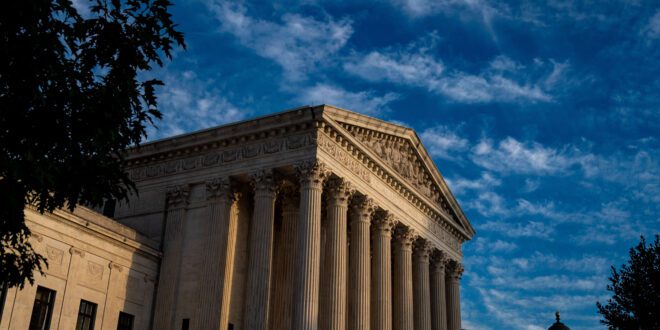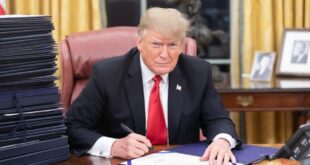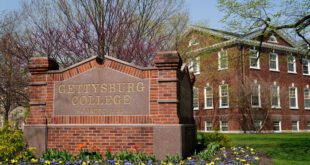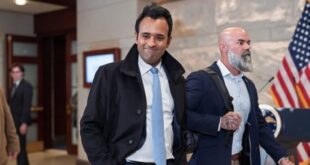Supreme Court Upholds North Carolina’s Partisan Gerrymander Ruling
WASHINGTON — In a 6-3 decision, the Supreme Court declined to impose new limits on state courts reviewing election-related issues. The ruling favored Democrats in North Carolina who fought against a heavily gerrymandered congressional district map that heavily favored Republican candidates.
The Supreme Court justices ruled that the North Carolina Supreme Court acted within its authority when it concluded that the map constituted a partisan gerrymander under the state constitution.
Notably, the Supreme Court rejected the “independent state legislature” theory, which argues that state courts should have limited authority to strike down certain election laws enacted by state legislatures. This theory is based on language in the Elections Clause of the Constitution that gives legislatures the power to prescribe election rules in each state.
Chief Justice John Roberts, writing the majority opinion, emphasized that state courts can apply state constitutional restraints when legislatures act under the power conferred on them by the Elections Clause. However, he noted that state courts do not have complete freedom when conflicts with federal law arise.
The case originated when the then-Democratic-controlled state Supreme Court ruled against the gerrymandered map. However, following the November mid-term elections, the court switched to Republican control and recently overturned the decision. This raised questions about whether the Supreme Court needed to decide the case.
Justice Clarence Thomas, joined by Justices Samuel Alito and Neil Gorsuch, dissented, arguing that the case was moot.
Due to a state law provision, the congressional map in North Carolina will be redrawn prior to the 2024 election. As a result of the North Carolina Supreme Court’s ruling, the new map is likely to heavily favor Republicans.
Impact on Election-related Rules and Power of State Legislatures
The independent state legislature theory, which suggests that legislatures have ultimate power under state law in terms of federal election rules, has never been endorsed by the Supreme Court. Supporters of this theory argue that it would affect not only redistricting disputes but also other election-related rules, such as mail-in voting and voter access to the polls.
A ruling that embraced the theory would also raise questions about the power of governors to veto legislation. Chief Justice William Rehnquist previously embraced a version of the theory in the Bush v. Gore ruling of 2000, which led to Republican George W. Bush assuming the presidency.
During oral arguments, several justices referenced Rehnquist’s opinion to support the idea that there should be constraints on the scope of state officials, including judges, to make changes to election laws enacted by legislatures that are not anchored in law.
Background and Context
The independent state legislature theory has been cited by supporters of former President Donald Trump in various cases related to the 2020 presidential election and its aftermath.
The North Carolina case gained attention due to its potential impact on the 2024 presidential election. Republicans, led by Tim Moore, the speaker of the North Carolina House of Representatives, invoked the theory after the state Supreme Court struck down the congressional district map in February of last year.
At the time, the state court ruled that the map, which Republicans designed to maximize the influence of Republican voters, constituted “unlawful partisan gerrymanders” and violated state constitutional provisions.
Voting rights advocates and Democratic voters turned to the state court after the U.S. Supreme Court ruled in 2019 that federal courts could not hear partisan gerrymandering claims, but left open the possibility for state courts to address the issue.
Republicans immediately asked the Supreme Court to reinstate the maps, arguing that the state court had exceeded its authority. The high court agreed to take up the case but left in place a replacement map for the 2022 midterm elections, in which Democrats and Republicans each won seven seats.
Although the Supreme Court refused to intervene in the 2020 election-related cases that raised the theory, several conservative justices indicated some support for it during the litigation.
Supporters of the theory, including John Eastman, who was involved in Trump’s efforts to overturn the 2020 election, believe it will limit the authority of state courts in certain circumstances and give legislatures unchecked power.
Democrats and voting rights activists have voiced concerns about the potential impact of embracing the theory, particularly in light of the attempts to overturn the 2020 presidential election’s results.
 Mind Uncharted Explore. Discover. Learn.
Mind Uncharted Explore. Discover. Learn.




